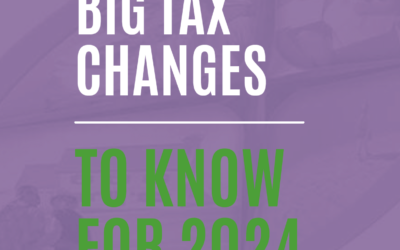The Smart Estate Planning Newsletter
Estate Planning Under The New Tax Act: Everyone Needs A Review
When was the last time you examined your will or trusts? How about power of attorney or plans to gift assets? Under the new tax act, only eight per 10,000 estates will owe federal estate tax—at least until the act sunsets. That means everything needs to be reviewed.
According to the Center on Budget and Policy Priorities, only two out of every 1,000 estates owed federal estate tax in 2017, which means that 99.8% of estates owed no taxes at all. Despite its limited impact on most Americans, the House legislation proposed a total repeal of estate taxes. While the final tax act does not quite go to that level, the new legislation doubles the unified estate and gift tax exemptions from a former $5.6M into an $11.6M individual estate tax exemption ($23.2M for married couples) if you pass away in 2020. Under the new tax act, those numbers will be approximately 0.08%, or eight per 10,000 estates will owe federal estate tax.
Review the ‘formula’ in your wills and trusts to avoid unintended consequences
It wasn’t that long ago that people with estates under $1 million had to be concerned about the estate tax. So the number of wills that need to be reviewed and revised in light of the changes in the law is enormous. In addition, there are always family circumstances to consider in determining how much to leave beneficiaries and in what manner. Equally (if not more) important, many of these documents have formula clauses tied to the amount of the previous lifetime exclusions, which could now result in unintended estate consequences. Thus, many of these estate plans should be reviewed in light of the act. And the federal estate tax is not the only consideration for estate planning. State estate taxes may apply in many situations.
Some people may be fooled into thinking that because the estate exemption amount has doubled, that there is no need to meet with a financial advisor or attorney. However, the increase doesn’t eliminate all estate planning issues (and it can create others). In fact, any changes to estate planning laws actually necessitate a new conversation. And remember that the law is due to sunset in eight years, cutting the lifetime exemption in half to $5.5 million (indexed for inflation). Thus, the sunsetting provision triggers a host of other issues. Do we aggressively gift now or hold off and hope to pass assets at death?
So it’s time to ask: Are the formulas used in your will and for your bequests current? Is the formula still on target and does it benefit the people you want it to? The calculations to fund bequests may not reflect the exemptions of approximately $11.6 million per person. Here are two examples to illustrate our point.
Example 1: If someone created a will in 2003 when the estate tax exemption was $1 million, she may have given the maximum amount to a credit shelter trust that won’t create any estate taxes, and the rest to her husband. The credit shelter trust might have been for the benefit of her children from a prior marriage or children and a spouse. If the estate was valued at $4 million, that meant that $1 million went to the trust and $3 million went to the husband. Because of the new act, the whole estate would go to the trust and nothing to the husband. If the estate was $10 million, the husband would have received $5 million until December 31, 2017, but not in 2018 when the law changed.
Example 2 A will was written when the generation-skipping transfer tax exemption was $1 million. The testator wanted most of his assets to go to his grandchildren and the balance to his children. He wrote in his will that he wanted the maximum amount that is not subject to generation-skipping taxes to go to the trust for his grandchildren and the remainder of his estate be divided equally to his children. He had a $5 million estate with two children, in which $1 million went to a trust for the grandchildren and each child received $2 million. Under the new act, the children receive nothing. In short, any document with a formula (however simple it seems on its face) needs to be reviewed.
Questions on trusts to ask yourself
Also, don’t forget to review outdated trusts! Trusts are important to control the disposition of assets, even if estate taxes are no longer a factor. For people with under $23.2 million of assets, which is most Americans (99.92%), trusts are used to distribute estates to the right beneficiaries in the right way.
- Does your will protect your spouse and children with a flexible trust?
- Are your aging relatives protected with a robust revocable trust?
- Does the trust still make sense? Review the purpose of the old trust.
You could have an insurance trust where the spouse is the beneficiary. The insurance trust was set up to pay estate taxes and may no longer be needed. Thus, the trust could be used for other purposes. Note that over 20 states permit merging an old trust into a new trust, which can help to repurpose the original trust.
But what if the lifetime exemption is reduced to $2.5 million in the future? What would you do with the insurance trust? This is another consideration in a landscape that is ever-changing, and proper flexibility needs to be built in.
Consider gifting
Another tried and true tactic for successful estate planning is reviewing your power of attorney (POA). Do you have a POA that gives their agent the right to make gifts under their state law (as state laws vary on this)? Make sure you review who is appointed as the agent so that any gift giving is done in ac cordance with your wishes. You may want to have your attorney update the POA to include a broad gift provision.
Ask yourself: Are you planning to gift any assets this year? Affluent people should consider gifting, since they are now allowed to give away up to $11.6 million tax-free during their lifetime. They can give their wealth to family members ahead of 2026 to ensure that this amount, plus any future growth, is transferred tax-free—because who knows what will happen in 2026? But remember that when gifting, the recipient gets the donor’s tax basis, which can be very low.
For those who may want to make smaller gifts, the 2020 annual exclusion amount is $15,000 per person. However, here again, gifts made will continue to pass with the donor’s (often lower) tax basis. If a donor has significant unrealized gains, the donor could wait until death to give the beneficiary the asset and the beneficiary would benefit from the step up to the fair market value, but they risk the sunsetting provision decreasing the lifetime exemption.
Also, high-net-worth individuals should consider using grantor-retained annuity trusts (GRATs) for assets that are expected to highly appreciate. GRATs are used to make significant financial gifts to family members without paying gift taxes by transferring property into an irrevocable trust in exchange for fixed annual “annuity” payments. The annual annuity payments are calculated with a monthly interest rate, called the Section 7520 rate, typically a very low interest rate (between 2-4%). The beneficiaries of the GRAT would then receive the assets at their appreciated value. This strategy will only work if the assets that are transferred into a GRAT will outperform the interest rate, which currently is also very low.
Although the tax act was publicized as a way to simplify taxes, it is anything but. Reviewing your documents with a financial advisor and speaking with a tax professionals as needed will give you and your family some peace of mind.

Big Tax Changes to Know for 2024
Financial Guides2024 has brought some big tax changes with it. It’s essential to stay informed about these...
The Smart Tax Planning Newsletter March 2024
Tax PlanningIn This Issue: IRAs for Young Adults Get Up to $32,220 in Sick and Family Leave Tax Credits New Crypto Tax...
2024 Key Planning & Investment Deadlines for Q2
Financial GuidesSpring is coming and to keep you financially organized for Q2, we are providing you with our Spring...






